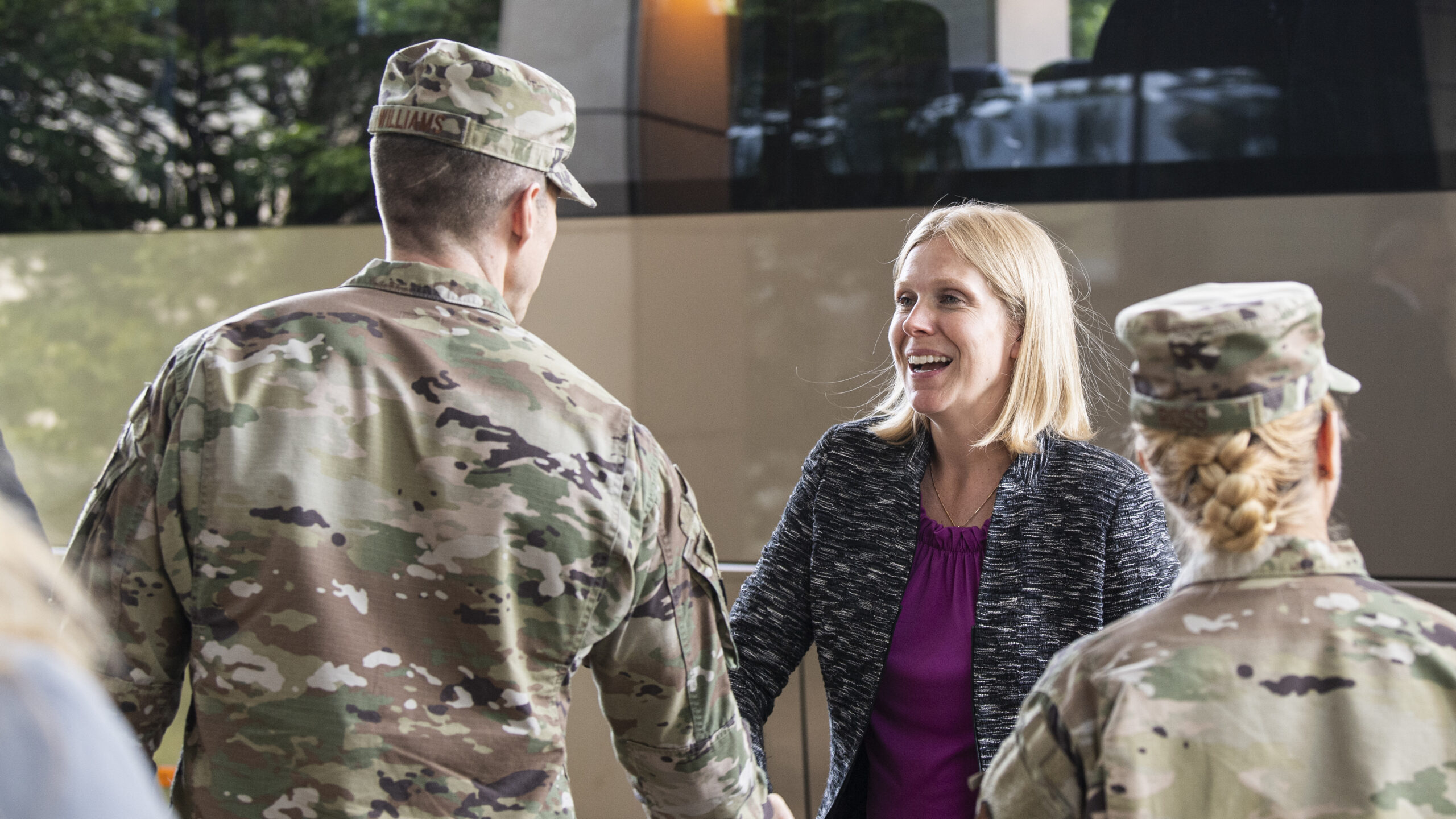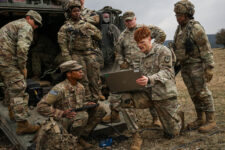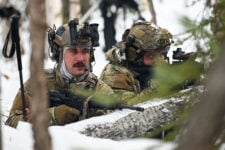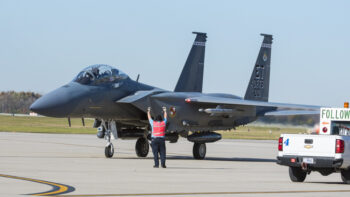
Lauren Knausenberger, Air Force chief information officer. (US Air Force photo by Senior Airman Ali Stewart)
TECHNET CYBER 2023 — The Air Force’s chief information officer said today that shifting the service’s software development platform known as Platform One into the Pentagon’s new Joint Warfighting Cloud Capability (JWCC) would be a “perfect” move, and is figuring out how to do it.
“Actually the appetite’s pretty high and I think that would actually be a really good thing because Platform One was envisioned to be a platform that any development team could show up to and have a comprehensive and complementary set of products and services that were well orchestrated to drive mission value across whatever that mission was,” Lauren Knausenberger said at AFCEA’s TechNet Cyber conference in Baltimore. “And I think actually a move to JWCC would be perfect.”
Knausenberger said she mentioned the idea to DoD Chief Information Officer John Sherman and said if the service can deal with a few issues, like data sovereignty, “people will be beating down the door to jump onto JWCC.”
The Pentagon last December awarded Amazon Web Services, Google, Oracle and Microsoft each a spot on the JWCC multi-cloud contract, which is worth up to $8 million and is envisioned as being the foundation for Joint All Domain Command and Control, DoD’s effort to connect sensors to shooters across land, sea, air, space and cyberspace domains. The Pentagon wants JWCC to be an option for the military services, but the intent isn’t to override their individual cloud-focused efforts, Sherman told Breaking Defense in an interview in January.
Under the contract, each vendor will have to compete for task orders, and the first batch of orders were awarded to all four companies back in March this year to essentially do some early prodding about what the contract could do.
“The first task orders awarded under the JWCC contract allows the JWCC Program Management Office to test cloud service offerings in a sandbox environment, validating several JWCC requirements through real world cloud consumption (e.g., proof of concepts, verification of policy-based controls),” a spokesperson told Breaking Defense on March 29.
Fast forward to today, there are dozens of task orders in the pipeline that are on the cusp of being awarded, and two-thirds of those are from the military services themselves, Sherman said during the conference on Wednesday. Speaking to reporters later that day, Sharon Woods, director of DISA’s Hosting and Compute Center, told reporters that the interest for JWCC is “definitely growing and we’re seeing that every week.”
“I would say we’re seeing a combination of interest from the combatant commands, from the Fourth Estate, as well as the military services,” Woods said. Fourth Estate, in this case, refers to Pentagon agencies outside of the military services themselves. “So it’s a really robust mix is what we’re seeing.”
She added that all classification levels for JWCC — unclassified, secret and top secret — are now operational.
“In terms of the task orders, we’re seeing both unclassified and on secret requirements and we have some folks that are early in the process that are interested in the top secret fabric as well,” Woods said.






















